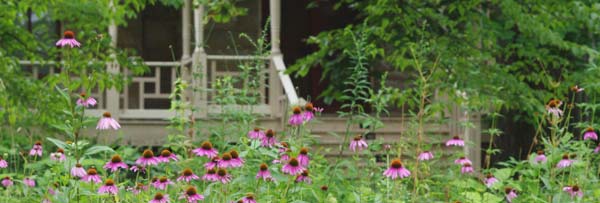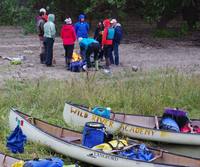
Programs Available
Short Programs for Service Clubs and other community groups
Ideal information bytes for luncheon programs and clubs. Free. To schedule, contact Jerry Rigdon or Dave Riley. Presentations include photos pertaining to Leopold's childhood and natural areas.
Green Fire Showings
Screenings of the one hour film, Green Fire; Aldo Leopold and a Land Ethic for Our Time are available. The Aldo Leopold Foundation has kindly granted us a public screening license. This showing can also include introductions and behind the scenes photos from the filming. Free.
Longer Programs
Programs are available for presentation to any sized group. Contact Steve Brower for scheduling and costs. Topics include:
Aldo Leopold and the Roots of the Land Ethic
Leopold's childhood experiences were significant to evolving the Land Ethic. Family cultural education in the humanities and discoveries in the local wild landscapes gave Aldo a head start on conservation. We take a look at the Leopold Compound and some of his favorite places to learn more about the reflections he used in later writings. These early years stimulated his imagination and he continued searching for personal connections to nature as he dealt with conservation challenges along the way.
Aldo Leopold's Youthful Discoveries & His Relevance Today
Leopold's childhood could become a model for how we help today's children balance our increasingly technological culture with nature. Leopold realized that his reactions to nature, his discoveries while ranging through wild places built character, created values, and provided relief from fast paced society--all in ways that serve the individual, and thus the community. Wild places close to home and school serve humans in unexpected ways. We visit the Aldo Leopold Middle School Prairie Classroom to see how and why.
The Starker-Leopold Family: Connecting the Humanities to Nature
Leopold's extraordinary family was the source of a home ground education that linked portrayals by writers, artists and musicians to a real nature around home. The Starker grandparents brought a European longing for a more balanced society with wild spaces that had been lost in the homeland. In America was a chance to get the relationship between humans and nature right, but it was a matter of balancing the practical and poetic.
Leopold in the Southwest and Wisconsin
Follow Leopold to some of the places he worked and helped save for us today in New Mexico and Arizona. Add to the impressions he created in essays and letters, by looking at more details. In Wisconsin we tour the Shack area and some of the rivers and marshes that played an important role to bring back the sandhill cranes.
